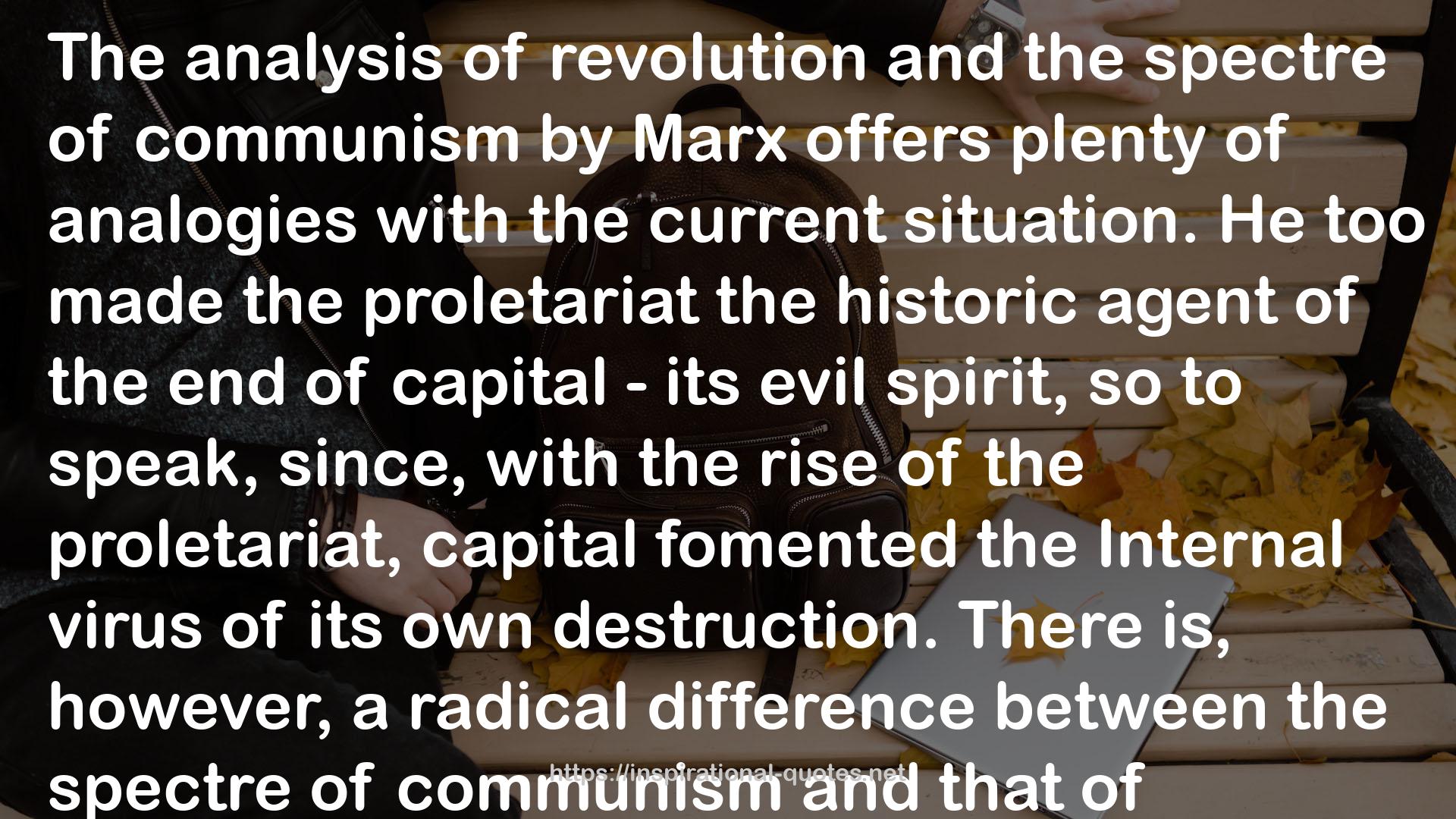" The analysis of revolution and the spectre of communism by Marx offers plenty of analogies with the current situation. He too made the proletariat the historic agent of the end of capital - its evil spirit, so to speak, since, with the rise of the proletariat, capital fomented the Internal virus of its own destruction.
There is, however, a radical difference between the spectre of communism and that of terrorism. For capital's great trick was to transform the agent of disintegration it carried within it into a visible enemy, a class adversary, and thus, beyond economic exploitation, to change this historic movement into a dynamic of reintegration leading to a more advanced stage of capital.
Terrorism operates at a higher level of radicalism: it is not a subject of history; it is an elusive enemy. And if the class struggle generated historical events, terrorism generates another type of event. Global power (which is no longer quite the same as capital) finds itself here in direct confrontation with itself. It is now left to deal not with the spectre of communism, but with its own spectre.
The end of revolutions (and of history in general) is not, then, in any sense a victory for global power. It might rather be said to be a fateful sign for it. "
― Jean Baudrillard , The Intelligence of Evil or the Lucidity Pact
